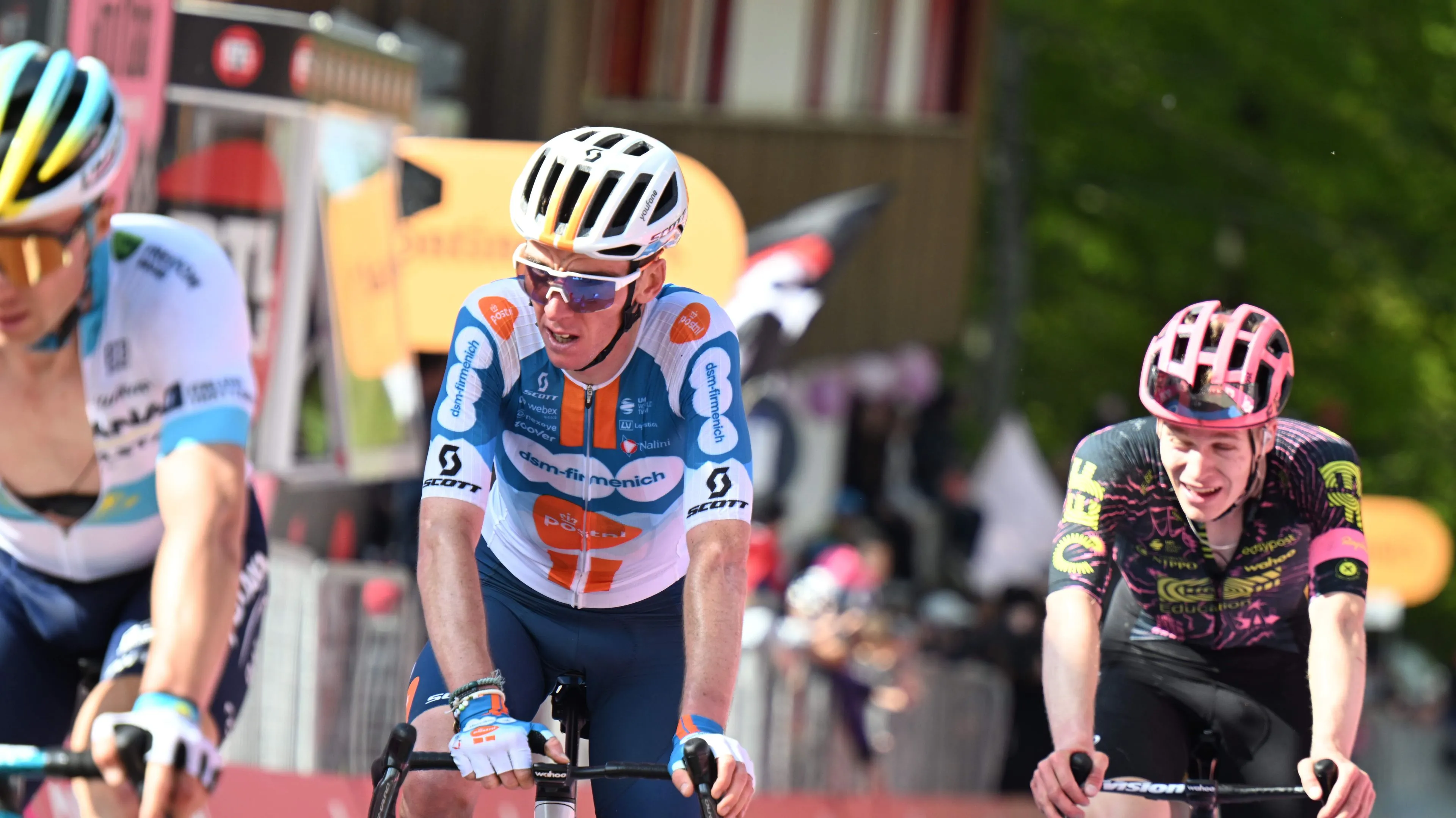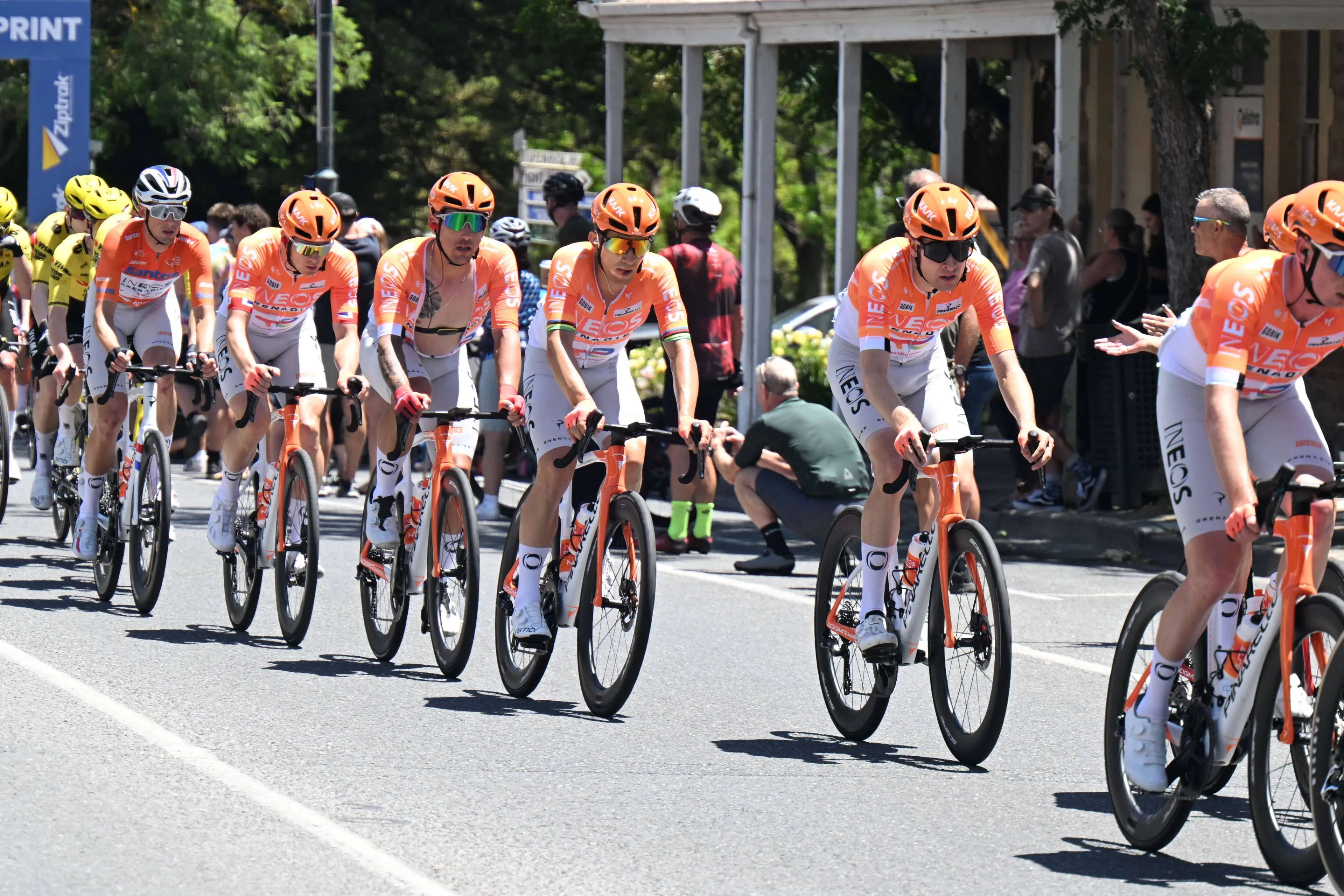"Cycling is one of the few sports where having an atypical brain is really useful" - Harry Sweeny hopes to break the autism taboo in the peloton
CyclingSaturday, 01 June 2024 at 08:30

There are professional cyclists with diabetes (mainly thanks to American Novo Nordisk) but riders with autism is still something the audience may not be ready yet. EF Education-EasyPost's Harry Sweeny would like to change their view and break the taboo in the peloton.
"The only reason I became a professional cyclist is because of the structure of my brain," Sweeny tells American website Escape Collective. "I work obsessively on the things I'm bad at, and also work obsessively on the things I'm good at to make sure I don't lose that level. It's almost like an addiction without the drug."
Read also
However Sweeny can see positive aspects of his difference as professional cyclist. "Being neurodivergent is a huge advantage for me as a rider, because cycling is one of the few sports where having an atypical brain is really useful."
Sweeny is not the only rider who suffers from an autism spectrum disorder. Great cyclists such as Greg LeMond, his boss Jonathan Vaughters and even the German Tour winner Jan Ullrich also announced after their cycling career that they had a certain form of autism. However, Sweeny is the first rider to share his diagnosis with the world during his career. According to the 25-year-old Australian, many of his colleagues also have ASD, but they just don't know it yet.
Read also
"There is more and more research showing that people at the absolute top in their profession are much more likely to have an atypical brain than the rest. The more I learn about it, the more I also see that there are a lot of pros who have autism but just don't know it. I think sports brings that out in people. To get to the top, you not only have to have talent, but also be obsessive about your profession or hyper-focused. And there are many colleagues in whom I see this."
Read also
claps 3visitors 3
Just in
Popular news
Latest comments
- I hope Bardet sticks with it and gets a world championship. he got 2nd in Innsbruck, coincidentally to Alejandro. it would be great to see him on the top step.mij24-02-2026
- Jonas, you've got this. 💪
 parisbound0023-02-2026
parisbound0023-02-2026 - I am purely speculating but perhaps that devastating crash with the postal van affected him much more than we were led to believe. It seems like a similar scenario to the Froome and Bernal training ride crashes. Both won the TDF but were never the same again after those terrible crashes. Hopefully, this is not true for Remco and is just a minor dip in form and he lifts later in the year.Pogboom23-02-2026
- Did somebody say that he's guilty?
 santiagobenites23-02-2026
santiagobenites23-02-2026 - Let Jonas continue to do what he's doing.
 parisbound0023-02-2026
parisbound0023-02-2026 - Nice blame the son for the sins of the father. What ever happened to innocent until proven guilty ? Oh yeah that's not the UNITED STATES OF AMERICA.captmike23-02-2026
- He said he was off and he was. Let him be and see what happens in the coming months. See if he can hang with Pogi at the TDF. I believe he will hold his own with Jonas who is showing signs of slight decline (sorry to fans but it seems it) and I like him. My only issue is that instead of just saying "I was off" or "I didn't have it", Remco always has a list of things that cause an issue. With that always happening sooner or later it sounds like an excuse and not a simple answermd197523-02-2026
- 100% the same sad sad person. Posting practically the same text.mobk23-02-2026
- This edition can't be compared to any previous one because the inclusion of Jebel Mobrah changed how Jebel Hafeet was raced. Previously, if you won on that climb you (most likely) won the GC, with time gaps being insignificant. Pogačar's 2025 Jebel Hafeet ride and Isaac Del Toro's 2026 ride are like two CX races - in one, Mathieu rides away easily and then rides tempo, in the other, Nys Del Grosso, Vandeputte etc. push him so he goes faster.
 Rafionain-Glas23-02-2026
Rafionain-Glas23-02-2026 - Milan is improving, but I don't like very much sprinters that needs trains, I like "solo" sprinters that know how to position themselves. In general, I don't prefer cyclists who depend too much on the rest of the team; I perceive them as a king with his slaves. That's why, for example, I prefer Tadej (very independent) to Jonas, both are extraordinary, but Jonas is depending on his team. Most of the times, Tadej is alone, even against echelons, he's in front of the peloton, and the rest of UAE, who knows where...
 maria2024202423-02-2026
maria2024202423-02-2026
Loading
2 Comments











